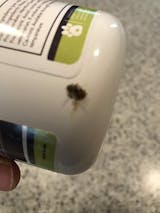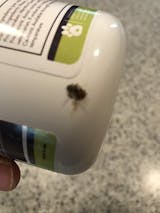When your dog starts to take quick short breaths and seems as if he/she couldn’t breathe, is your dog hyperventilating? Can dogs hyperventilate or is this something else? As a matter of fact, yes, dogs can hyperventilate. Now that you know that when your pup is displaying the mentioned symptoms they could be hyperventilating, you need to learn how to identify the causes of the condition, since they can be the result of a serious medical problem.
Keep reading to find out the signs, causes, treatment and ways to prevent hyperventilation in dogs.
Signs of hyperventilation in dogs
How do you know when your dog is hyperventilating? There are some signs to look for to confirm that your pup is actually hyperventilating and is not suffering from another medical condition.
- Quick short breaths
- Open mouth breathing
- Accelerated heart rate
- Drooling
- Blue or pale gums
- Excessive panting and drooling
- Weakness and dizziness
- Collapsing
- Crying or howling
- Excessive thirst and urination
Why is my dog hyperventilating?
Now that we know how hyperventilation looks in dogs, we can go over what causes it. Among the long list of possible causes of hyperventilation in dogs, there are some serious ones that require medical attention, and there are some that represent a lower level of concern and can be easily treated. Let’s go through them.
Over-heating
One of the most common, and most dangerous reasons why dogs hyperventilate is due to overheating. This occurs when a dog is exposed to extreme high temperatures. Since dogs can’t sweat the way we do, their body tries to cool down its temperature by panting. But if a dog can’t cool down successfully, they can develop an extremely dangerous life-threatening condition called heat stroke.
So, if you see your dog hyperventilating and they have been exposed to an intense heat, this is probably why.
Over-excitement
This is one of the causes of hyperventilation in dogs that we don’t need to worry about since it doesn’t represent a hazard for our pup. Dogs tend to get over-excited when they sense that awesome things are about to happen, such as going for a walk or to the park, hearing the doorbell or receiving guests they like.
As mentioned before, hyperventilation due to over-excitement is not something to be worried about. But if the hyperventilation occurs for longer than usual and your pup won’t stop doing it, in this case you should definitely take them to the vet.
Stress and anxiety
While dogs can hyperventilate when they are happy, they can also do so when they are feeling stressed or anxious about something. Some of the types of anxiety dogs can face are separation anxiety and Generalized Anxiety Disorder. What’s more, dogs can get stressed thanks to specific triggers such as fireworks, thunderstorms, car rides and going to the vet.
All of these anxiety related causes can make a dog hyperventilate. You will identify this cause because it will most likely be accompanied by other symptoms such as destructive behavior, whining, going potty inside the house, salivating and even aggressiveness.

Reverse sneezing
Reverse sneezing in dogs happens when instead of blowing air out as a regular sneeze, they take air in and end up making rapid short inhalations through the nose that can result in snorting or gagging. While reverse sneezing, dogs can also display symptoms of hyperventilation.
Once again, this cause is nothing to worry about. Reverse sneezing in dogs is completely normal. Nevertheless, if you want to learn more about this, about what to do when your dog starts reverse sneezing and whether you should take them to the vet or not, click here.
Metabolic Acidosis
This condition is the result of an increased amount of acid production due to metabolism in a dog’s body. This provoques a disruption in the pup’s blood PH. This is a serious condition related to dogs hyperventilating, and it is most likely the symptom of a severe underlying health condition in the liver or kidneys, such as diabetic ketoacidosis, renal failure or poisoning.
Metabolic Acidosis also has other symptoms apart from hyperventilating such as nausea, vomiting and diarrhea.
Breathing problems
There are a few serious breathing conditions that can cause hyperventilating in dogs, such as:
- Collapsing trachea: occurs when the cartilage inside the trachea and throat muscles weaken and collapse, which results in hyperventilating and difficulty breathing.
- Asthma: dogs who suffer from this chronic breathing condition can also hyperventilate as one of its symptoms.
- Laryngeal paralysis: this condition provoques that the muscles that hold the airway open start to weaken. As a result, there’s a narrowing of the airways that makes dogs hyperventilate.
- Kennel cough: this well-known condition can cause hyperventilation in dogs, alongside other symptoms such as the commonly known ‘dry cough’.
Cushing’s disease
This severe health condition occurs when too much cortisol is produced in a dog’s body. As a result, they can develop an intense and insatiable thirst and hunger, which can make them start to hyperventilate. Of course, this is another severe cause.
Allergic reactions
The last reason why dogs might hyperventilate is due to an allergic reaction. Dogs can be allergic to a long list of things such as pollen, dust, smoke, chemicals, medicines and certain foods.
Treatment of hyperventilation in dogs
The truth is there isn’t one specific treatment for hyperventilation in dogs, because as mentioned before, this condition has multiple causes. Each cause has its own specific treatment. With overheating, you’ll need to find ways to cool your dog down, such as taking them to a place with shade or with a lower temperature, giving them fresh water, or providing them with frozen treats.
With stress and anxiety, it depends on the type of anxiety your dog suffers from. One tip that will help your dog deal with any kind of anxiety is giving them calming supplements. They will help them relax and prevent symptoms such as hyperventilating. For treating Generalized Anxiety Disorder, read this article, and for separation anxiety, this one.
The remaining causes of hyperventilation in dogs should all be treated by a professional vet that can determine the most appropriate course of medical action for your dog.
How to prevent hyperventilation in dogs?
Can you prevent your dog from hyperventilating? Once again, it all depends on the causes. But there are definitely some things you can do to prevent some of them.
In order to prevent overheating and heat strokes, you can read this article.
In order to prevent stress and anxiety, the best thing you can do is learn how to help your dog cope with situations they find stressful, such as fireworks.
















